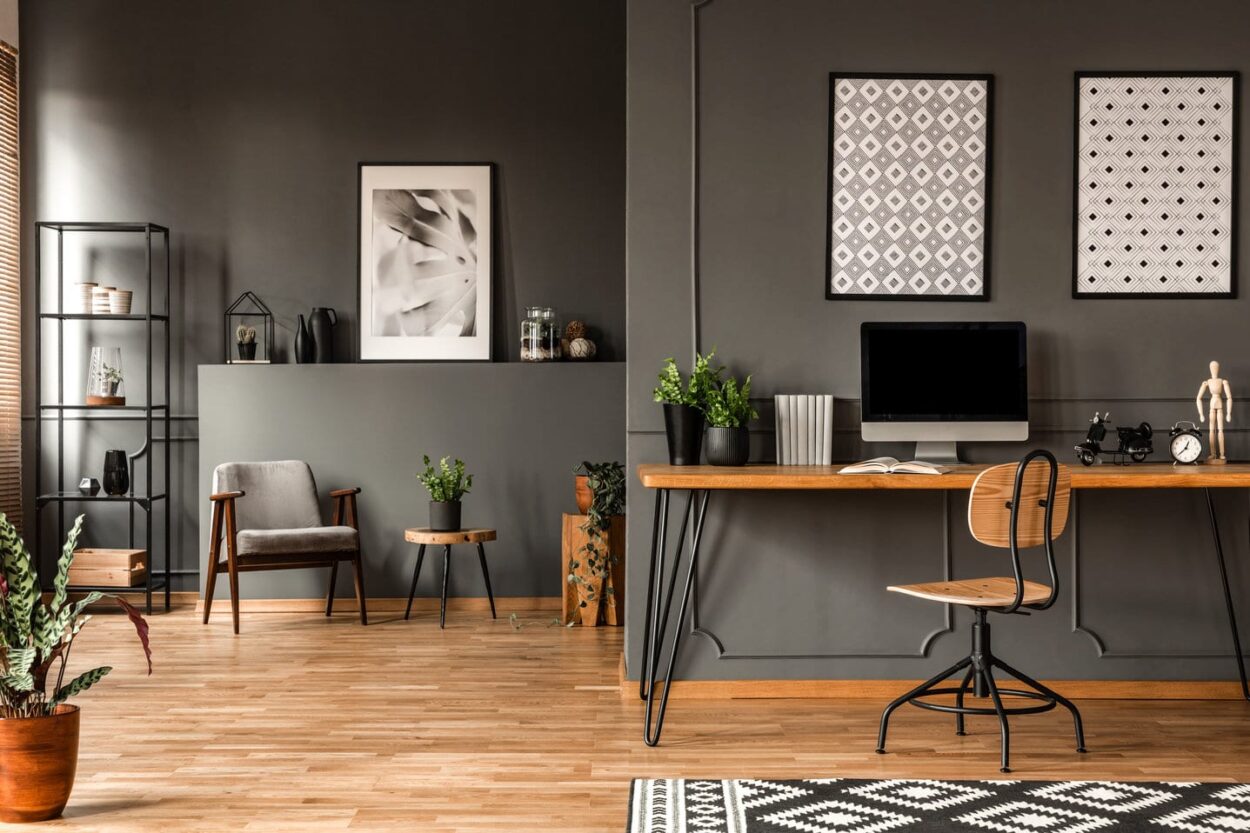Jasmine Birtles
Your money-making expert. Financial journalist, TV and radio personality.


Freelancers have to complete a Self Assessment tax return by January 31st every year. This includes listing all your income for the tax year – and your allowable expenses. But what can you include as a legitimate expense -and what will HMRC refuse?
Let’s look at what you can – and can’t – include as an allowable expense on your Self Assessment. This guide is for sole traders – taxes for Limited Companies, PLCs, and charities are different.
The Trading Allowance is perfect if you turn over less than £1,000 a year with your self-employment. For example, if you occassionally babysit or do some garden chores, or if you have a small business that’s just getting started.
You don’t have to register as self-employed with HMRC if you turn over £1,000 or less in a tax year. However, you can’t claim expenses if you do it this way. So, if you turn over £1,000 but your expenses cost £500, you can’t write off that £500 to maximise your profits. If you think you will turn over more than £1,000, or you want to offset your expenses against your income, it is best to register as self-employed with HMRC.

Before you start throwing everything on your business account as an expense on your Self Assessment, hold up! You may need to prove to the tax man that your expense was incurred ‘wholly and exclusively’ in the line of work.
For example, you can’t book a two-week holiday to attend a one-day conference and claim the entire cost. You can, however, claim the travel required to get to the conference, and the hotel one night before (or even after, depending on the distance from home and travel requirements). The rest of your accommodation and trip expenses – i.e., your holiday – must come out of your own pocket.
Sometimes, especially when you’re starting out, you’ll use personal stuff in the line of business. You might use your mobile phone, for example, or your laptop, when you’re first operating your freelance business.
You can’t claim the full bill – but you can work out the reasonable portion of the cost that’s used in the line of business. For example, you could work out how many minutes you used from your mobile phone monthly tariff for business purposes and use that as a proportionate amount to claim.
If you run a low-overhead business, your costs may come in at under £1000 a year. If this is the case, you can claim using ‘simplified expenses’ for some things. This includes the business use of vehicles, cost of working from home, and living in your business premises. Everything else needs to be worked out as actual costs.
Simplified expenses saves you a big headache! You use flat rate expenses set by HMRC to make approximated expense claims, rather than adding up every single mile you’ve travelled in the year (for example). Check out the Gov.uk website for more details about simplified expenses.
The flat rate for working from home, for example, is £10 per month for between 25-50 hours a month, £18 for 51-100 hours, and £26 for 101+ hours a month. This can net you more than working out actual expenses (see below).
Decide if you want to follow the traditional or cash basis accounting options. Traditional accounting is where you count the invoices sent out that month – not necessarily the money received. This can be useful when you’re setting up if you have a lot of inventory or long payment terms, as you’ll be able to offset unpaid invoices.
Cash basis accounting is often simpler for sole traders to use, though. It only takes into account the money you’ve actually received in that tax year, and the actual expenses incurred.
Whichever basis you use, make sure you keep ALL RECEIPTS for at least seven years. You will also need to be prepared for Making Tax Digital, which starts rolling out from April 2026 for those with a turnover of £50,000 or above. So, consider getting a business bank account with integrated HMRC-approved MTD software like Freeagent or Xero. This will make the quarterly returns required much easier.

Many freelancers work from home – either for cost reasons or personal preference. Others like to rent a desk in an office – or have a membership to flexible co-working spaces for the days that the same four walls drive them loopy!
You can claim some costs incurred by working from home as an allowable expense on your tax return. You can’t, unfortunately, expense your entire Council Tax or electricity bills – but you can expense some of them.
Use the number of rooms in your home for the calculations. You can include living areas, bedrooms, kitchens, office spaces, even garages if you work in it. You can’t use lobbies, porches, hallways (including mezzanine areas) – but if you have a garden room that’s on your main power supply, you can include that.
Count how many rooms you have in your home. Divide your monthly bills total by the number of rooms you’ve got. Say your bills come to £350 and you have five rooms – that’s £70 a room. Then, look at the amount of time you use each room for work.
Let’s say you work 100 hours a month. You spend 50 hours in the living room (room cost £70 x 50% time = £35), 30 hours in the kitchen (£70 x 30% = £21), and 20 hours in your garden room (£70 x 20% = £14). So, that’s £35 + £21 + 14 = £70 expenses allowed.
Even if you have a dedicated home office, make sure you use it for personal use somehow. This could be storing personal items in it or sometimes watching a film on your laptop in there. Why?
Capital Gains Tax! If you sell your home and have used only one room exclusively for work, you open yourself up to a CGT bill. That’s why it’s better to work out percentage time rather than just one room’s use!
Calculate every bill: rent or mortgage interest (not total mortgage repayments), electricity, gas, Council Tax, water. Your telephone and broadband bills can be worked out on a percentage usage rather than room calculations, if you don’t have dedicated business phones and broadband.
Do you use a specific desk, chair, or filing cabinet? Have you purchased bulbs for the lamp on your desk? Perhaps you’ve got a noticeboard on the wall for your important paperwork and reminders.
Anything that you buy that’s wholly and exclusively for your business can be claimed. If there’s any personal use – such as an office chair you sit on to watch YouTube on your lunch break – discount the proportion of time you use it for personal activities against the cost.
Power cables, surge protectors, monitor risers: everything and anything you use to equip your office space can be included.
This also includes business expenses such as postage, envelopes, printer ink, paper, and stationery. You can also include software purchases – including monthly subscriptions to things like Dropbox or Office 365.
Do you use a desk with a PC and monitors? A laptop raised up on a stand? A specific mobile phone for work?
You can discount all these costs as an allowable expense! However, you should make sure it counts as an allowable expense rather than a capital expenditure. An allowable expense is something you’ll use for less than two years – such as rent, bills, and stationery. If you use cash basis accounting, computers are allowable expenses, too. However, if you use traditional accounting, equipment is a capital allowance.
As with the other things, if you use your computer or mobile phone for personal use, you have to claim proportionately.

“You have to spend money to make money” is really very true when it comes to launching and maintaining a self-employed business.
One of the best investments you can make in your business is getting the right people to do each task for you. While many self-employed people running their own business are simultaneously accountant, marketer, sales person, doer-of-the-actual-thing, social media executive – it’s actually better to hire people if you can.
You can offset the cost of professional fees, such as accountants and solicitors, as an allowable expense. Using a professional will save you a LOT of time and help you avoid potentially massive (and costly) headaches in the future.
If you need a helping hand to help run a stand at an exhibition, or you want to pay someone to run your social media, these costs fall under allowable expenses, too. This is different to having an employee: you must use contractors here, rather than hire someone on payroll. If you want an employee, you’ll need to be a Limited Company and make employer National Insurance and pension contributions. Using contractors means you pay the set fee on the invoice without the above costs.
Sole traders don’t HAVE to have a separate bank account – but it’s advisable to set one up, especially with Making Tax Digital around the corner, which can involve direct reporting from your bank account. You can use a current account, rather than a business account, which often means no banking charges.
However, if you want access to business credit cards, loans, and even to work with public organisations, you’ll need a business account. These come at a cost – but you can offset monthly fees as an allowable expense. You can also claim overdraft charges, credit card interest payments, leasing costs, and currency conversion fees.
Those using traditional accounting can also claim for bad debts. This is when a customer hasn’t paid you. You’ll have to show you’ve tried to recover the money first, but if there’s no luck (such as your customer has gone bankrupt) you can write this off against your profits.
As a business owner, it’s imperative to have business insurance. At the very minimum, professional indemnity insurance helps protect you against claims from clients. If you run exhibition stands or people visit your premises, you’ll also need public liability insurance by law. These costs all count for allowable expenses.
If you’re a member of a professional organisation or union, you can often include professional indemnity insurance in your membership, so it’s worth checking the fine print before you take out a separate policy.
You can’t run a business if you don’t shout about it! Everything you do to market your business can count towards allowable expenses.
So, when you set up your website, your hosting and domain costs are allowable expenses. Your flyers, business cards, and online pay-per-click adverts are all counted, too! If you have a product to sell, sending free samples to reviewers is classed as marketing.
Attending an event? Get branded items from VistaPrint like pens, stress balls, keyrings, and everything else you need to give away as tempting freebies – they all count as a legitimate marketing expense. The same goes for print advertising in your local paper or national magazines and newspapers, paying to list your business in a directory, and your direct mail costs.
Alas, taking potential clients out for dinner does not count as marketing. ‘Client entertainment’ isn’t an allowable expense. If, however, you meet with someone to get their advice on a business aspect and buy them lunch instead of paying for their consulting time, this can be expensed as it is a payment in kind. You can also charge subsistence for drinks and food to a reasonable amount if you are working away from your usual place of work, such as if you have to visit a different city for a conference.
Do you want to get t-shirts with your logo on? What about branded hoodies from VistaPrint? Perhaps you want to wear a smart uniform that’s only used for your line of work, such as if you run your own cleaning business. Or, if you need special clothing such as steel-capped safety boots, those can be claimed.
You can claim branded clothing as a marketing expense. You can also claim uniform costs – and you can claim laundry costs for uniforms, too.
You can’t, however, claim for clothes that you’d wear normally at home. Or even a business suit for meetings if you’re usually in jeans and a hoodie! The rule with clothing is very much that it either has to count as marketing (i.e., branded) OR used as a uniform ‘wholly and exclusively’ for your business.
The one exception to claiming for clothing that is not task- or uniform-specific is for performers like actors. They often need to buy clothes for auditions or their own performances, so if it is a costume it is an allowable expense.

This is an interesting one. You can include things like trade magazines in your allowable expenses, plus membership to recognised industry organisations if they’re related to your business.
Further education also counts as an allowable expense if it builds on a skill you already have for your business. For example, if you’re a freelance events producer, your job is mostly marketing. So, you could claim for a marketing diploma or even a full CIMA qualification. However, you couldn’t decide you wanted to change careers as a bricklayer and count that course as an allowable expense.
This still leaves your opportunity base pretty broad, especially if you’re a sole trader. For example, let’s say you’re a freelance writer – lots of writers benefit from learning how to use graphic design software. So, an online Photoshop course could count. Or, any business-related course such as a bookkeeping qualification will also qualify for any sole trader, as they need these skills to build and maintain their business.
Attending trade conferences and events also counts as continued professional education – so make sure you put your ticket costs down as an allowable expense, too!
If you commute regularly to an office, you can’t claim those costs as an expense. Everything else though is a great big tick in the Yes You Can Claim column!
Train, bus, even air fares all count if you’re travelling wholly and exclusively for business purposes. If you buy a vehicle solely for your business, you can count the purchase as a capital expense (or the lease fees as an allowable expense). All MOT, insurance, servicing, repairs, parking, and fuel is allowed, too.
If you use your personal car to travel for work, you can claim mileage costs. This is based on the HMRC mileage rates which is set fairly high so should cover fuel costs as well as wear and tear incurred.
There are lots of other costs that MIGHT be an allowable expense. You need to ask yourself if it’s used ‘wholly and exclusively’ for business use. Here are some examples you may come across – it all depends on your line of work and whether you use something only for your business with no personal use.
Trade journals are a clear allowable expense, as is subscription-based software like GSuite or Dropbox. But did you know you could claim for other things – including buying books and newspapers, or even subscriptions like Netflix and Spotify?!
You need to prove a real business use. Playing Netflix while you’re working for ‘office entertainment’ doesn’t count! However, if you are – for example – an actor or budding film director, you could justify the subscription as a research tool. The same goes for Spotify if you’re a musician or podcaster, or even things like Twitch if you’re a gamer trying to make an income from streaming.
Now, 99.99% of the time this won’t wash with HMRC. HOWEVER, if you are – for example – a sports model, it’s your job to keep fit and stay looking healthy. If you’re a personal trainer, gym equipment counts as an allowable expense, too.
If your job is based primarily on your appearance – i.e., you’re a model or an actor – you could try claiming costs for hair and beauty treatments. You’ll need to be able to prove, if questioned, that the expense was a legitimate business claim though!
Travelling anywhere for business meetings or events often means going a long way from home. You’re entitled to claim your accommodation cost as an allowable expense if your trip is 100% business related. If you choose to extend your trip, you can only claim the nights that were required for your meeting.
Like hotels, if you’re travelling away from your primary place of work for an overnight or extended trip, you can account for overnight meals. This doesn’t mean going all-out and getting a steak dinner with champagne though – the cost must seem reasonable.
We can’t stress this enough: contribute to your pension! Self-employed people often put themselves last, especially their older-way-in-the-future selves. Start squirrelling away money into your pension every month – even if it’s a small amount.
While it’s not an allowable expense on the tax return, there is another section that asks you to declare your pension contributions. It’s important you include your total annual contributions here, as it means you’ll make the most of the tax relief on offer – meaning free money for your pension pot!
One of the funniest claims we’ve heard of being accepted by HMRC is a guard dog. You’re entitled to claim for security costs to your business premises – if your dog is considered a guard dog, technically you can claim for their purchase, upkeep, vet bills and food! However, always remember that HMRC could audit you at any time – so if you’re thinking of listing your chihuahua as a guard dog, maybe think twice…


Some great information here. Thanks.